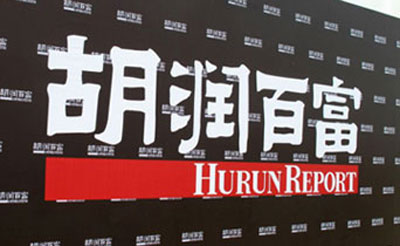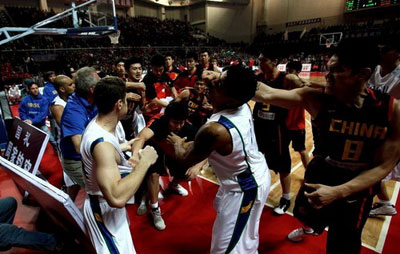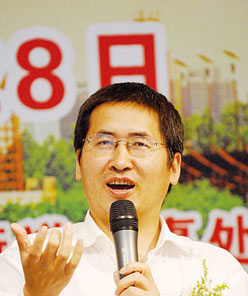


The Wealth of Chinese Rich and Powerful on Par with the US
Economic Observer Online, October 9, 2010
By Yi Peng, Economic Researcher and Writer
~The Hurun rich list was published once again. What is most worthy of our attention is not who is the wealthiest, but what Hurun said about it: “It is possible that the number of billionaires have more or less reached the number of billionaires in the US. I already know of 97 in China [with a personal wealth of over 10 billion yuan]. I am certain that there are about 100 more that we missed.”
~If this statement is correct, considering that China’s per capita GDP is only 1/15 of the US, and that China’s overall GDP is also only 1/3 of the US, the immense disparity between rich and poor that exists in China will definitely shock citizens.
~What will shock people even more is the amount of time it has taken for Chinese billionaires to make their money. It has only taken China’s super rich ten years to reach the amount of billionaires that it took the US over one-hundred years to reach.
~The speed at which the super rich have accumulated their wealth in China far surpasses the rate of growth of China’s fiscal revenue and GDP.
~A country should have a reasonable wealth gap because by giving wealth and resources to capable people they can operate business, become managers, and create even more wealth. However limits to this type of wealth gap must exist otherwise it will negatively influence social stability. China is now among the countries with the highest Gini Coefficient, a measure of income inequality. It seems as if China has already surpassed the point at which wealth disparity will affect stability.
Original article: [Chinese]

Should the Chinese Men's Basketball Team Have to Apologize to the Nation?
Economic Observer Online, October 13, 2010
Zhu Chong, EO Columnist
~ The Chinese men's basketball team is at it again - following brawls with Lebanon in 2001 and a notorious "night of shame" punch up with the Puerto Rican team in Beijing in 2005, yet another brawl involving the team broke out during a friendly in Henan against the Brazilian national team on Tuesday night.
~ So what's behind the Chinese basketball team's apparent love of fighting?
~ After the fight with Brazil, China's head coach Bob Donewald told the press that the team acted in self-defense, having endured persistent rough play from the Brazilians, including a foul on Zhang Qingpeng that resulted in him sustaining a concussion and being sent to hospital. Although the coach's words have some validity, the Chinese team itself wasn't playing that clean either.
~ Some violence in sports is to be expected and of course we should continue to criticize these outbreaks and educate players - but there's no need to lift the issue to the level of high politics and go so far as to require the team to apologize to the opposing team and to the country.
~ The issue is that some players do not seem to have a clear understanding of what is real courage and how it should be used, especially when under the pressure of deliberate provocation from an opponent. Can they remain focused when taunted by an opponent? Can they continue to play by the rules despite such provocation?
~ Unless players can retain their cool, the ultimate victim could be the Chinese team - they might receive a fine or suspension from FIBA which would be especially damaging on the eve of the upcoming Asian Games.
Original article: [Chinese]
Full English Brief
 Zheng Fengtian: As Rural Investment Increases, A Breakthrough in Land Reform is Needed
Zheng Fengtian: As Rural Investment Increases, A Breakthrough in Land Reform is Needed
News, page 16
Zheng Fengtian, Associate Dean of Agriculture and Resources at Renmin University
~The process of commercialization revives agricultural capital and increases both land and labor productivity, but there are also several problems. Some commercial enterprises, because of poor management, are harmful to farmers’ interests. Farmers have also damaged the interests of businesses. The central government is worried about these problems.
~On average, when businesses lease land from farmers, farmers can earn 500-800 yuan/mu. They are employed by a company, and can earn more money; it’s much better than working on a family farm.
~The Central government implemented the “low grain prices” policy with urban residents in mind. The result being, the urban poor and the rich all have access to the benefits of “low grain prices,” while the 800 million farmers pick up the check.
~I think the government should let grain prices rise and provide subsidies to low-income families.
~The way I see it, the central government policies on grain safety are self-defeating.
Original Article: [Chinese]
Full English Translation

